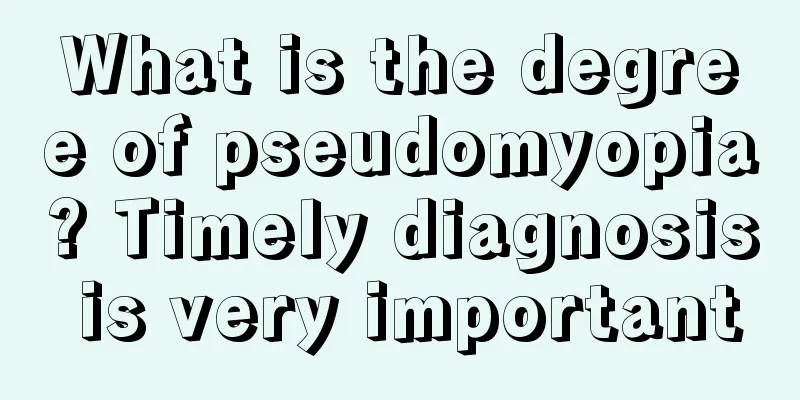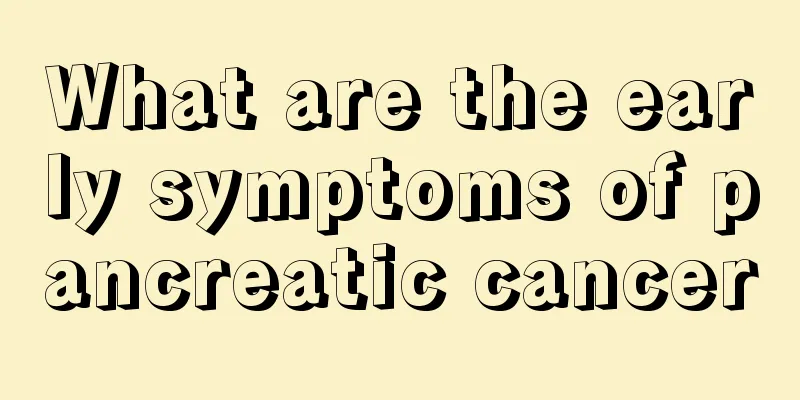What is the degree of pseudomyopia? Timely diagnosis is very important

|
If children or teenagers develop myopia, it is often not true myopia but pseudomyopia. Everyone should understand the symptoms of pseudomyopia and make a timely diagnosis. Parents should supervise their children to prevent pseudomyopia. 1. Symptoms of pseudomyopia 1. Far vision is lower than near vision. Far vision is less than 1.0, and near vision is equal to 1.0. 2. Vision is unstable. It may improve after a period of rest, but may deteriorate again when looking at close objects. 3. The efficacy is uncertain. Pseudomyopia is only effective during treatment for all current therapies, but may relapse when treatment is stopped and near-distance function is restored. 4. It is more common in teenagers. Because teenagers have strong accommodation ability, pseudomyopia is more common, but it can also occur in a small number of middle-aged people engaged in near work. 2. Diagnosis and Differentiation 1. Pseudomyopia: Farsightedness vision is less than 1.0, which can be corrected to 1.0 with negative spherical lenses. However, after using ciliary muscle paralysers (atropine, homatocrystalline) or fogging, myopia disappears and becomes emmetropia or hyperopia. This type of myopia is mainly caused by accommodative tension, so the myopia disappears after the accommodation is relaxed. It is usually seen in younger patients with a shorter onset time and lower refractive power. 2. True myopia: refers to the myopia state in which the myopia refractive power remains unchanged after using ciliary muscle paralyzing drugs to blur the vision. This type of myopia is mainly due to organic factors and caused by elongation of the eye axis, and has no obvious relationship with accommodation. It is usually seen in people who are older, have been ill for a long time, and have higher refractive power. 3. Intermediate myopia (or semi-true myopia): refers to the myopia condition in which the myopia refractive power is reduced but not completely eliminated after using ciliary muscle paralyzed drugs or fog vision. This type of myopia has both regulatory factors and organic factors. The reduced refractive power after regulatory relaxation is the result of joint tension, while the remaining refractive power is the result of organic factors. A school myopia survey showed that the lower the grade, the more pseudomyopia there is, and the higher the grade, the less pseudomyopia there is. This suggests that the occurrence of myopia may go through a process from false -> semi-true -> true. However, whether it is possible for some people to directly develop true myopia without going through the pseudo-stage requires further observation and research. |
<<: Is enema good for the body? Can I do enema frequently?
>>: Early symptoms and examination methods of myasthenia gravis
Recommend
Why is it that I don't feel any pain when I have blood in my stool?
The situation of bloody stool should be taken ser...
What is the principle of the warm baby
In winter, everyone often uses a magical device c...
What to do if facial bones protrude?
Oriental people have more prominent cheekbones, w...
How to clean the scale in the humidifier
Humidifiers are generally used in seasons with re...
What anti-inflammatory drugs should I take after chalazion surgery
Some people find that their eyes are purple-red a...
Apply ginger to scalp
Ginger is a very common condiment in our daily li...
What are the typical symptoms of glioma
Glioma is a disease that no one wants to happen t...
How many cigarettes is the most suitable to smoke in a day
Smoking is a very common thing in our lives. Many...
How is nasopharyngeal cancer caused?
Nasopharyngeal carcinoma is a common tumor in my ...
How to treat and relieve bloating?
Many people, especially office workers, suffer fr...
How to eat during lung cancer surgery? Diet care methods during lung cancer surgery
Generally speaking, patients with lung cancer wil...
What to do if the skin turns black after a burn
Being accidentally burned is a very painful thing...
The best time to nourish kidneys
When it comes to nourishing the kidneys, it is no...
What are the symptoms of scabies?
Scabies is a relatively common human parasite. Li...
How to remedy the sunburn after military training
The annual school opening season has arrived agai...









